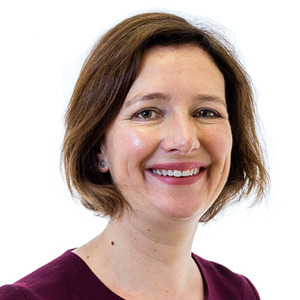
Louisa Wickham
Power List Profile
National Clinical Director for Eye Care, NHS England; Chief Medical Officer, Moorfields Eye Hospital NHS Foundation Trust, London, UK
What is a little-known fact about you?
I enjoy gardening – I find it very therapeutic. I am experimenting with growing vegetables in pots in my small London garden. Last year I grew courgettes (zucchini).
Make a bold prediction for the future of ophthalmology.
The increased awareness of the link between retinal findings and systemic disease will one day mean that eye investigations, such as OCT, will not just be used for the diagnosis and management of eye disease, but for systemic disease monitoring and prevention. I foresee diagnostic hubs on high streets that would offer systemic and ophthalmic read outs combined with health education and access to prevention or pre-symptomatic treatment.
If you weren’t an ophthalmologist, what would you be doing instead?
Designing healthcare facilities. At Moorfields Eye Hospital, London, we are in the early stages of construction of a new hospital, Project Oriel. This is a joint project between Moorfields Eye Hospital, University College London (UCL), and Moorfields Eye Charity. It will bring clinicians together with translational scientists in one building, providing them increased opportunities to collaborate and develop innovations for the benefit of patient care. I have found the process of designing spaces that will support transformational patient pathways fascinating and it has introduced me to a new perspective in health care.
How do you think AI and machine learning will impact ophthalmology?
It will potentially allow us to offer diagnostics and disease monitoring to a much larger population. I think this could be of value globally, particularly in countries which may be able to afford the equipment but do not have the expertise to analyze the data. This could help us support disease prevention and early diagnosis and treatment to populations that currently have very low access to health care.
